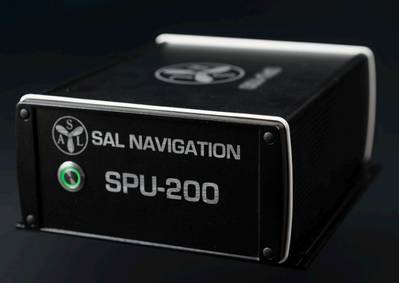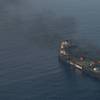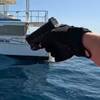The SAL SPU-200 Provides a Safeguard Against GPS Jamming
As GPS jamming and spoofing incidents escalate across Europe, disrupting aviation and posing security risks, the maritime sector faces similar vulnerabilities that threaten global trade and safety. AST Networks, a provider of satellite communication solutions and marine electronics, warns that vessels relying on GPS for navigation are increasingly at risk and must seek countermeasures to ensure operational integrity.
GPS jamming occurs when a device deliberately transmits signals on the same frequencies used by GPS satellites, effectively drowning out legitimate signals and rendering GPS receivers useless. Spoofing, on the other hand, is a more insidious threat involving transmitting false GPS signals to deceive receivers into believing they are at incorrect locations. Both tactics can severely disrupt maritime operations leading to navigational errors, collisions, or even vessels straying into restricted or dangerous waters.
Recent reports highlight how Russian-origin jamming has disrupted GPS signals across European airspace, forcing aircraft to re-route and, in some cases, cancel flights. Whilst much attention has been given to the aviation industry, AST Networks emphasizes that maritime operations are equally exposed. In high-risk regions, including the Baltic Sea and the Eastern Mediterranean, vessels navigating without back-up solutions are at heightened risk of being misled or rendered positionally blind. The consequences of this interference can affect commercial shipping, fishing operations, offshore energy installations, and even search and rescue missions.
AST Networks is an approved reseller of the SAL SPU-200, an anti-jamming and anti-spoofing unit developed by SAL Navigation to safeguard maritime navigation. The system integrates multi-frequency GNSS protection with signal authentication, ensuring that ships maintain accurate positioning, even in the presence of hostile interference.
The SAL SPU-200 employs interference mitigation techniques, allowing vessels to detect and reject deceptive signals in real-time. This is crucial in environments where GPS integrity is vital, such as congested shipping lanes, offshore oil and gas platforms, and defense operations. The system not only provides protection, but also enables ship operators to receive alerts when interference is detected, allowing them to take immediate corrective action.
Whilst traditional navigation methods, such as radar and inertial navigation, can provide some level of redundancy, they are not fool proof. A multi-layered approach that includes GNSS protection solutions like the SAL SPU-200 is ideal for ensuring operational continuity and security.











